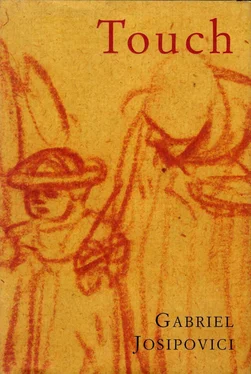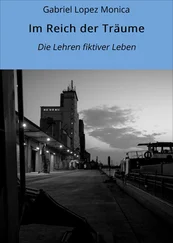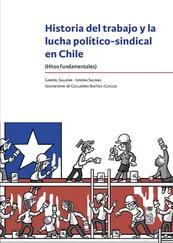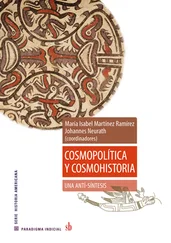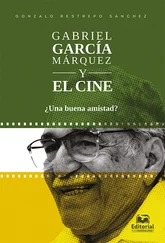Gabriel Josipovici - Touch
Здесь есть возможность читать онлайн «Gabriel Josipovici - Touch» весь текст электронной книги совершенно бесплатно (целиком полную версию без сокращений). В некоторых случаях можно слушать аудио, скачать через торрент в формате fb2 и присутствует краткое содержание. Год выпуска: 1996, ISBN: 1996, Издательство: Yale University Press, Жанр: Современная проза, на английском языке. Описание произведения, (предисловие) а так же отзывы посетителей доступны на портале библиотеки ЛибКат.
- Название:Touch
- Автор:
- Издательство:Yale University Press
- Жанр:
- Год:1996
- ISBN:0300066902
- Рейтинг книги:5 / 5. Голосов: 1
-
Избранное:Добавить в избранное
- Отзывы:
-
Ваша оценка:
- 100
- 1
- 2
- 3
- 4
- 5
Touch: краткое содержание, описание и аннотация
Предлагаем к чтению аннотацию, описание, краткое содержание или предисловие (зависит от того, что написал сам автор книги «Touch»). Если вы не нашли необходимую информацию о книге — напишите в комментариях, мы постараемся отыскать её.
Touch — читать онлайн бесплатно полную книгу (весь текст) целиком
Ниже представлен текст книги, разбитый по страницам. Система сохранения места последней прочитанной страницы, позволяет с удобством читать онлайн бесплатно книгу «Touch», без необходимости каждый раз заново искать на чём Вы остановились. Поставьте закладку, и сможете в любой момент перейти на страницу, на которой закончили чтение.
Интервал:
Закладка:
What seems to fascinate Proust is that these two columns, having been wrenched from their temporal and geographical origins, continue to exist as if nothing had happened, as if unaware of anachronism or estrangement, oblivious of their colon-like disjunctive interposition. They keep their distance, like the Virgin of Amiens, precisely because they refuse to acknowledge it. ‘Around the pink columns’, Proust goes on, ‘surging up toward their wide capitals, the days of the present crowd and buzz. But, interposed between them, the columns push them aside, reserving with all their slender impenetrability the inviolate place of the Past. …’ And it need not be stones that convey this experience. Over there, I think, is that other ocean, and the memory of my action that day in Los Angeles (rather than the memory of the actual sensation) helps to establish its distance from me now, its otherness, its incomprehensible vastness and ancientness, and so makes real for me its presence in a world which I also inhabit, and helps confirm that it is and will remain quite other than all my imaginings.
12 The Therapy of Distance (2)
‘The opacity of the surfaces’, writes Peter Brown, ‘heightened awareness of the ultimate unattainability in this life of the person they had travelled over such wide spaces to touch.’ The lay-out of the pilgrimage centre and the shrine was designed to heighten the effect of distance while reinforcing the message that distance may be benign, that it does not have to be totally overcome for praesentia to manifest itself. What we find here, as often in earlier and more traditional cultures, is the ritualisation of a basic and inescapable fact of life, the giving to it of a form and a shape in order to make it bearable and comprehensible. The ritual of pilgrimage, as both Brown and Morinis describe it, seems to enact in an atmosphere open to the imposition of public meanings what every child experiences when he holds his mother's hand. The mistake of the Lady Megetia was merely the mistake made by every insecure child, that of turning touch into grasp, of trying to grip and possess what should only be lightly touched or simply held.
But the late medieval church authorities, fearful that pilgrimage was being misused, that too many people were going on pilgrimages in the mistaken belief that contact with the saint would cure them of their physical ailments or else merely to satisfy their curiosity or engage in amorous play far from the prying eyes of their spouses or neighbours, tried to tighten their control over pilgrimages and even to restrict or ban them altogether. The proto-Protestant adherents of the Devotio Moderna even went so far as to insist that one should substitute mental pilgrimages for the real thing. One should stay at home, they argued, and merely meditate on the cult image. Interestingly enough, this too has its counterpart in the Hindu and Moslem traditions. Morinis quotes the poet-theologian Kabir as saying: ‘Benares is to the East, Mecca to the West; but explore your own heart, for there are both Rama and Allah.’
Craig Harbison, in his book on van Eyck, points out that ‘the kind of mental pilgrimage promoted by the Modern Devotion was a lengthy and methodical affair. This was not an imagined quick trip to a familiar local shrine, but a long, arduous mental journey to the Holy Land, tracing the steps of Christ, especially in order to relive the Passion.’ And he suggests that some of van Eyck's paintings, as well as those of other Netherlands artists of the fifteenth century, were precisely designed to promote such mental pilgrimages. A similar argument has been put forward by Donald Howard in relation to The Canterbury Tales .
But although such notions are superficially attractive they are, I think, profoundly misleading. For what the reformers wanted was to control what seemed to them to be something unruly and therefore irreligious; what they failed to see was that by cutting out the abuse they would also be impoverishing the very springs of religion itself. But that is a familiar story in the history of religion.
There is no substitute for the therapy of distance. To abolish the actual journey, with all its attendant dangers and attractions, with all its temptations and seductions, was also to abolish the therapy. As Eamon Duffy, writing about late medieval pilgrimage, with all its accretions of magic, bigotry and superstition tellingly puts it:
Even for the healthy pilgrim, drawn to the shrine by an itch for travel, by simple devotion, or by the desire to obtain indulgences, the ranks of crutches and fetters, boats and legs and hearts, and the sight of the sick themselves, waiting with varying degrees of hope and impatience, were an assurance that God was in his Heaven and the Devil did not always have the last word.
He cites a short doggerel prayer to the fictional Saint Walstan of Bawburgh, whose cult had grown prodigiously in Norfolk between the late thirteenth and the early sixteenth centuries, and whose shrine was the focus of an annual pilgrimage on his feast-day, 30 May:
You knight of Christ, Walston holy,
our cry to thee meekly we pray;
Shield us from mischiefe, sorrow & folly,
engendring and renewing from day to day,
replenishd with misery, Job doth truly say,
& bring us to health blessed with [Jesus'] right hand
him to love & know in everlasting land.
‘One could have worse summaries of the objectives of late medieval religion,’ Duffy comments, ‘and of the place of the cult of saints within it.’
By contrast the devout follower of the precepts of the Modern Devotion, who experienced pilgrimage only in his head, in the privacy of his study, through silent meditation, was already well on his way to becoming the prisoner of solitary confinement, the isolated individual prey to the anomie of modern urban life, cut off from God and his fellows and thus ultimately from himself, whom we have all encountered, if not in the mirror, at least in the writings of the classical sociologists.
A fascinating Lollard text has come down to us, which purports to be the record of the examination of a certain William Thorpe by Archbishop Arundel some time in the late 1390s, that is, just when Chaucer was writing The Canterbury Tales . Thorpe argues that there are two kinds of pilgrimage, the true and the false. True is ‘pilgrims travelling towards the bliss of heaven’ by living virtuous lives; but most of those who now go on pilgrimage, Thorpe says, are not like that at all — ‘these same pilgrims, telling the cause why that many men and women now go hither and thither on pilgrimage, it is more for the help of their bodies than for the help of their souls’. They sing and play the bagpipes, it seems,
so that in each town that they come through, what with noise of their singing, and with the sound of their piping, and with the gingling of their Canterbury bells, and with the barking out of dogs after them, these make more noise than if the king came there away with his clarions and many other minstrels. And if these men and women be a month out in their pilgrimage, many of them an half year after should be great janglers, tale tellers and liars.
The archbishop pulls him up at this and reminds him that music helps the sore and tired to keep going. Besides, he asks, what about King David? Did he not play the harp and dance before the ark of the Lord? Thorpe's only reply to this is that we should read not the letter but the spirit of Scripture, and when Arundel asks him whether it is not right to have organs in church wherewith to praise God, he replies: ‘Yea, sir, by man's ordinance, but by the ordinance of God a good sermon to the people's understanding were … much more pleasing to God.’
These two minds will never meet. Thorpe focuses on the temptations to sin afforded by pilgrimage, poetry, music and song, while Arundel replies with the traditional defence of these as an aid to religion. Each is convinced that he has won the argument, but today we can see that the questions have been wrongly posed. It is not a matter of letter versus spirit, true pilgrimage versus false. There can never be a simple distinction between the two: pilgrimage, like poetry and music and storytelling, is, for better or worse, embroiled in both or it is nothing at all.
Читать дальшеИнтервал:
Закладка:
Похожие книги на «Touch»
Представляем Вашему вниманию похожие книги на «Touch» списком для выбора. Мы отобрали схожую по названию и смыслу литературу в надежде предоставить читателям больше вариантов отыскать новые, интересные, ещё непрочитанные произведения.
Обсуждение, отзывы о книге «Touch» и просто собственные мнения читателей. Оставьте ваши комментарии, напишите, что Вы думаете о произведении, его смысле или главных героях. Укажите что конкретно понравилось, а что нет, и почему Вы так считаете.
